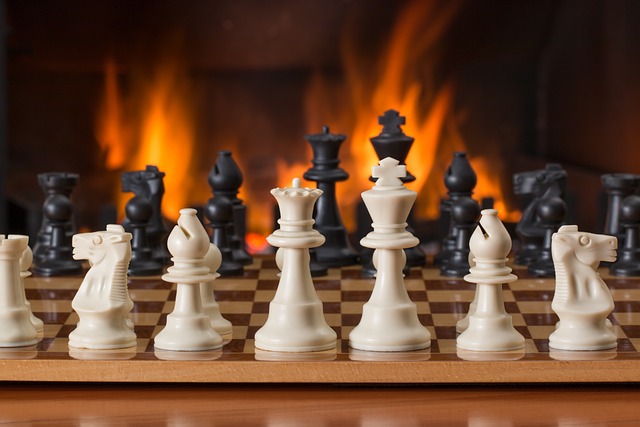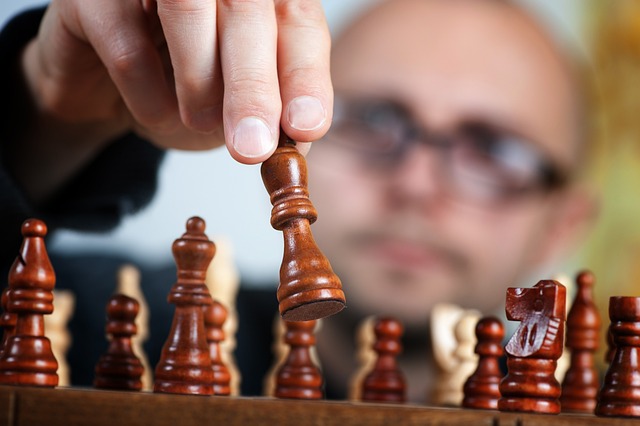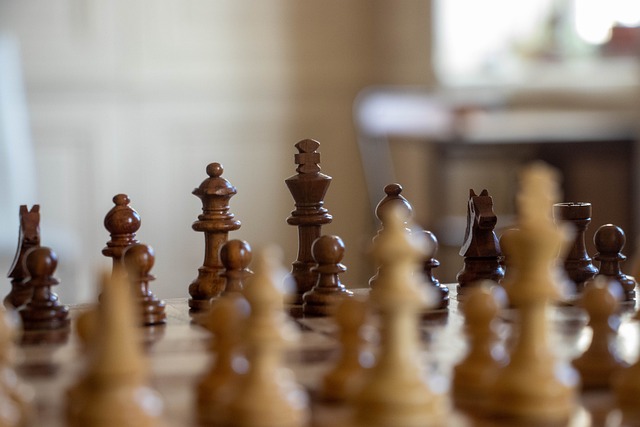In the captivating realm of chess, time holds the power to shape destinies and dictate outcomes. As aspiring chess enthusiasts, we find ourselves contemplating the duration of a game, yearning to unravel the mysteries behind its length.
Are chess battles brief skirmishes or epic sagas? Join us on a journey of exploration as we delve into the enigmatic dimensions of time within the game, seeking answers to the question: How long does a game of chess usually last?
What influences the duration of a chess game?
Several factors contribute to the length of a chess game. The players’ skill levels, strategic choices, and the overall pace of the game all play a role. The complexity of the position and the decision-making process can result in varying durations.
Some games can end swiftly, characterized by brilliant combinations or unexpected checkmates that bring about a sudden conclusion.
On the other hand, there are games that extend into captivating battles, testing the players’ endurance and strategic prowess. The duration of a chess game can vary widely, depending on the interplay of these factors and the unique dynamics that unfold on the board.
Can a chess game end swiftly?
Absolutely! In the world of chess, it’s not uncommon for a game to reach a rapid conclusion. A single move can change the entire course of the game, leading to a swift victory or a sudden checkmate. This aspect of chess is what makes it so exhilarating and unpredictable.
Players must be vigilant and always on the lookout for opportunities to seize the advantage or deliver a decisive blow. With the right combination of skill, tactics, and foresight, a chess game can indeed end swiftly, leaving both players and spectators in awe of the power and brilliance of the moves played.
Do grandmaster clashes extend into the realm of hours or days?

When it comes to grandmaster clashes, the duration of the game can extend far beyond the typical time frame. These extraordinary battles of intellect can unfold over hours or even days. Grandmasters are renowned for their meticulous approach to the game, carefully calculating each move and considering multiple variations.
Their strategic depth and understanding of the game lead to intricate maneuvers and a fierce struggle for supremacy on the board. With so much at stake and such high levels of skill involved, it’s not surprising that these matches can stretch out, captivating audiences and leaving everyone on the edge of their seats.
Is there a fundamental difference between fast-paced blitz matches and classical encounters?
Yes, there is indeed a fundamental difference between fast-paced blitz matches and classical encounters in the world of chess. Blitz matches are characterized by their rapid tempo, with players having limited time to make their moves.
This results in intense, action-packed games that require quick thinking and lightning-fast decision-making. On the other hand, classical encounters unfold at a more leisurely pace, allowing players to delve deeply into complex strategies and positional play.
These longer games provide an opportunity for players to demonstrate their depth of understanding and engage in more nuanced battles on the chessboard. Both formats offer unique challenges and excitement, catering to different preferences and playing styles.
Can a single move alter the course of a game?
Absolutely! One of the captivating aspects of chess is the potential for a single move to completely transform the course of the game. A well-timed and strategically sound move can disrupt the opponent’s plans, create new threats, or open up unforeseen opportunities.
It can shift the balance of power, turning a losing position into a winning one or vice versa. This element of surprise and the ever-present possibility of a game-changing move add an exhilarating layer of suspense and tension to each move played on the chessboard.
How does the opening phase impact the duration of a chess game?

The opening phase of a chess game plays a crucial role in determining the duration of the overall battle. It is during this initial stage that players strategically position their pieces, lay the foundation for their plans, and establish control over key areas of the board.
The opening sets the tone for the rest of the game and can significantly impact its trajectory. A well-prepared player may execute their opening moves quickly, aiming to gain an early advantage or surprise their opponent.
Conversely, a more cautious approach in the opening can lead to a more methodical and strategic game, extending the duration as players carefully maneuver their pieces. The opening phase is a critical juncture where players aim to establish a strong position and set the stage for the ensuing middle and endgame phases.
Are there strategic maneuvers to accelerate or prolong the game’s progression?
Indeed, there are strategic maneuvers that players can employ to either accelerate or prolong the progression of a chess game. Aggressive players may opt for tactical maneuvers, seeking opportunities to launch quick attacks and force their opponents into defensive positions.
Such aggressive play can lead to shorter, more dynamic games. On the other hand, players adopting a more solid and cautious approach may focus on consolidating their position, making it challenging for their opponents to find weaknesses or breakthroughs.
By implementing strategic maneuvers that emphasize solid defense and patient maneuvering, players can extend the duration of the game, leading to long, strategically complex battles. The choice of strategic maneuvers adds another layer of depth and excitement to the game, allowing players to showcase their unique playing styles and tactical creativity.
What role does the clock play in determining the game’s duration?
The clock in a chess game plays a crucial role in determining the duration and adding an element of urgency to the players’ decisions. Each player has a limited amount of time to make their moves, and as the clock ticks down, the pressure builds, intensifying the game’s tempo.
The strategic management of time becomes a skill in itself, as players must allocate their precious minutes wisely, balancing between thoughtful analysis and quick decision-making. The clock introduces a thrilling dimension of suspense, as players race against time to outmaneuver their opponents and reach victory before the final seconds elapse.
Have there been legendary chess battles that stretched on for eternity?

While chess battles can be intense and captivating, there haven’t been any games that have stretched on for eternity. However, in the annals of chess history, there are legendary encounters that have been marathons of mental endurance, stretching over multiple days.
These epic battles between grandmasters have become the stuff of chess folklore, captivating the imagination of chess enthusiasts and showcasing the incredible determination and resilience of the players involved.
Are there any fascinating anecdotes about remarkably short or long games in chess history?
Chess history is replete with fascinating anecdotes about games of remarkably short or long duration. There are instances of lightning-fast games that ended in just a few moves, leaving spectators astounded by the speed and brilliance of the victory.
Conversely, there are also legendary games that spanned countless hours, filled with complex strategies, deep calculations, and dramatic turnarounds. These stories of exceptional brevity or endurance highlight the diversity and unpredictability of the game, offering memorable moments etched into the tapestry of chess history.
Can a time control mechanism influence the average length of a game?
The time control mechanism used in chess tournaments can indeed influence the average length of a game. Different time controls, such as rapid, blitz, or classical, impose specific time constraints on players, shaping the tempo and dynamics of the game.
Rapid and blitz games, with their shorter time limits, tend to result in faster-paced and more exhilarating contests, with players making quick decisions under time pressure. In contrast, classical games, with longer time controls, allow for deeper analysis and strategic planning, often leading to longer games filled with intricate positional battles and protracted endgames.
Is there a correlation between player skill levels and the duration of games?
The duration of a chess game can exhibit correlations with the skill levels of the players involved. Skilled and experienced players tend to possess a deeper understanding of the game’s complexities, enabling them to navigate positions more efficiently and make decisions more swiftly.
Consequently, games involving highly skilled players often exhibit a faster pace, with players displaying greater efficiency and accuracy in their moves. However, this correlation is not absolute, as individual playing styles, game situations, and strategic choices can also significantly impact the duration of a game.
Are there differences in game duration between online and over-the-board chess?
There can be differences in game duration between online and over-the-board chess. In online chess, where players make moves electronically, the absence of physical boards and pieces speeds up the gameplay.
Additionally, the use of digital clocks and pre-set time controls in online platforms adds further efficiency to the games. Conversely, over-the-board chess, played with physical boards and pieces, involves the physical act of moving the pieces, which can take more time.
The tactile nature of over-the-board chess can contribute to a more deliberate and thoughtful approach, potentially resulting in longer game durations.
Can variations in chess variants affect the duration of a game?
Variations in chess variants can certainly affect the duration of a game. Different chess variants, such as Chess960 or Three-Check Chess, introduce unique rules and gameplay dynamics that can lead to faster or slower-paced games.
Variants with altered starting positions or win conditions may influence the speed and strategic depth of the game, resulting in shorter or longer durations compared to traditional chess. These variations offer players fresh challenges and opportunities for creativity, while also influencing the overall duration of the games.
Is the duration of a chess game solely dependent on the players?
| Game Type | Approximate Duration | Factors Influencing Duration |
|---|---|---|
| Blitz | 5-10 minutes | Fast-paced tempo, limited thinking time |
| Rapid | 15-30 minutes | More time for strategic decisions |
| Classical | 2-6 hours | Deeper analysis, complex positions |
| Tournament | 4-6 hours | Higher skill levels, competitive play |
| Grandmaster Clash | 6+ hours | Highly skilled players, intricate battles |
While players’ skills and decision-making play a vital role in the duration of a chess game, it is not solely dependent on them. The interplay of various factors, such as time control, game situation, opening choices, and unforeseen developments, all contribute to the overall duration.
The complexity and depth of chess ensure that no two games are alike, with each match unfolding its own unique narrative and timeline. The duration of a chess game is a captivating blend of player choices, external factors, and the sheer beauty of this timeless game.
Wrap-up
In conclusion, the duration of a chess game is influenced by a fascinating interplay of factors. From the strategic choices of the players to the impact of time control mechanisms and the dynamics of different chess variants, each game unveils its own captivating journey.
Legendary battles have showcased the endurance and brilliance of grandmasters, while anecdotes of remarkably short or long games add flavor to chess history. The clock adds a thrilling element of urgency, and a single move can alter the course of the entire game.
Whether played online or over the board, chess captivates with its complexity, strategy, and the sheer joy of witnessing minds clash on the 64 squares. In the world of chess, no two games are the same, and the duration of each game becomes a part of its unique story.




